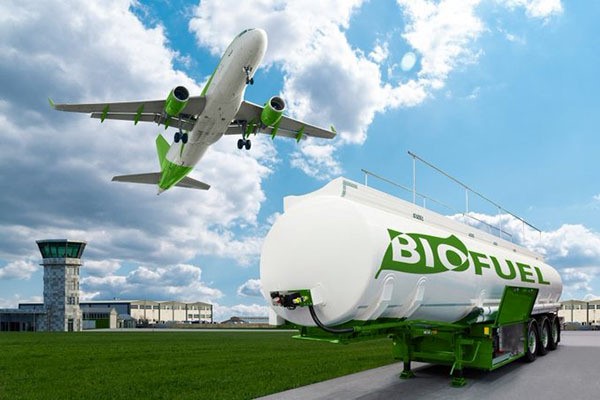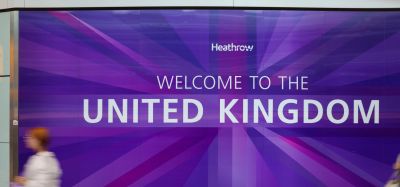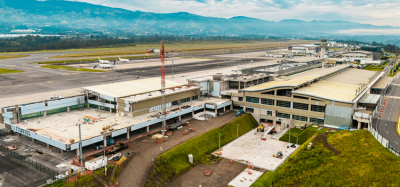FAA invests nearly $92 million to accelerate airports to Net Zero 2050
Posted: 14 July 2023 | International Airport Review | No comments yet
The Federal Aviation Administration (FAA), will be funding about $92 million to 21 airports for solar panels, electric buses and more.


Airports across the country are more sustainable thanks to funding from the Federal Aviation Administration. CREDIT: FAA
Airports across the U.S. are set to become more sustainable thanks to funding from the Federal Aviation Administration (FAA). As part of nearly $268 million in grants, about $92 million will go to 21 airports for solar panels, electric buses, charging stations and electrification studies; investments that support good-paying jobs and their local communities. Also, as a part of this sustainability effort, the agency is providing funding to help general aviation airports safely transition to unleaded fuel for piston-engine aircraft.
“We need to help airports transition their operations as quickly as possible to renewable power. Our investments keeps us on track for the net-zero goal,” said Shannetta R. Griffin, P.E., Associate Administrator for Airports.
Solar Power
$46.8 million of FAA’s funding will go to key sustainability projects, including energy saving solar power equipment and infrastructure:
- $22.58 million to Indianapolis International Airport in Indiana to construct energy efficient infrastructure and install solar panels
- $20 million to Phoenix Sky Harbor International Airport in Arizona to design and construct solar parking structures
- $3 million to El Paso International Airport in Texas to install solar panels
- $600,000 to Southeast Iowa Regional Airport in Burlington to install solar panels
- $333,450 to La Porte Municipal Airport in Indiana to install solar panels
- $150,000 to Centerville Municipal Airport in Iowa to install solar panels
- $150,000 Decorah Municipal Airport in Iowa to install solar panels.
Electrification
An additional $44.5 million by the FAA has been awarded to airports to plan for and purchase electric vehicles and electric transportation infrastructure:
- $16 million to Portland International Airport in Oregon to construct zero emissions vehicle infrastructure
- $4.8 million to Harry Reid International Airport in Las Vegas to purchase electric buses and charging stations
- $3.4 million to Raleigh-Durham International Airport in North Carolina to purchase zero emissions vehicles and charging stations
- $3.2 million to Sacramento International Airport in California to purchase electric buses
- $3.1 million to Salt Lake City International Airport in Utah to purchase electric buses and charging stations
- $5.1 million to San Francisco International Airport in California to purchase electric buses and charging stations
- $3 million to Pittsburgh International Airport in Pennsylvania to purchase zero emissions vehicles and associated infrastructure
- $2 million to McGhee Tyson Airport in Tennessee to purchase zero emissions vehicles and charging stations
- $1.5 million to Kansas City International Airport in Missouri to purchase electric buses
- $1.1 million to San Diego International Airport in California to construct electric vehicle charging infrastructure
- $300,000 to Gerald R. Ford International Airport in Grand Rapids, Michigan to purchase zero emissions vehicles and charging stations
- $590,000 to Bill and Hillary Clinton Airport in Little Rock to purchase electric buses with chargers
- $154,000 to Bert Mooney Airport in Butte, Montana to purchase electric vehicles with chargers.
Unleaded Fuel
To safely eliminate leaded aviation fuels in piston-engine aircraft by the end of 2030, Prescott Regional Airport in Arizona will receive $243,000 to develop a plan to safely transition to unleaded fuel.
In its Aviation Climate Action Plan, the United States set a goal to achieve net-zero greenhouse gas emissions in the aviation sector by 2050. To help to achieve this goal, the FAA has awarded:
- $100 million to research and scale fuel-saving technologies and noise reductions
- $327 million to electrify airport gate equipment and vehicles
- $35 million for universities to help build sustainable aviation fuel supply chains and develop new software capability to reduce fuel burn and taxi time.
Stay Connected with International Airport Review — Subscribe for Free!
Get exclusive access to the latest airport and aviation industry insights from International Airport Review — tailored to your interests.
✅ Expert-Led Webinars – Gain insights from global aviation leaders
✅ Weekly News & Reports – Airport innovation, thought leadership, and industry trends
✅ Exclusive Industry Insights – Discover cutting-edge technologies shaping the future of air travel
✅ International Airport Summit – Join our flagship event to network with industry leaders and explore the latest advancements
Choose the updates that matter most to you.
Sign up now to stay informed, inspired, and connected — all for free!
Thank you for being part of our aviation community. Let’s keep shaping the future of airports together!
Related topics
Funding and finance, Sustainability, Sustainable development

















